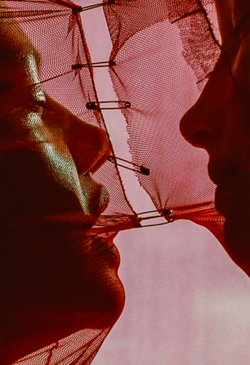 |  |  |  |  |
|---|---|---|---|---|
 |  |  |  |  |
THE CHERRY TORTURED
By Aaron Posner
The “Cherry Tortured” is a play where a patchwork family is reunited in their ancestral home about to be repossessed, subsequently revealing a tangled attachment to a place flawed with history and hopelessly human. With this design, I aim to emphasize the presence of clear flawed humanity in a place that is kind of silly and kind of sad. The layered nature of the home represents the patchwork nature of the family and individual, full of history and hundreds of stories. In this way, the house is not a symmetrical perfect thing, but an unsymmetrical, flawed, and patchwork structure created by stories.
 |  |  |  |  |
|---|---|---|---|---|
 |  |  |
MEDEA
By Luigi Cherubini
 |  |  |  |  |
|---|---|---|---|---|
 |  |  |  |
THE PILLOWMAN
By Martin McDonagh
This design centers around Katurian as he tries to escape the realities of the domineering totalitarian state he inhabits, represented through the grand grid compressing his environment. Katurian is forced to see his own mind through his reflection in the double sided mirror. In this way, the stories take place exclusively behind the two-way mirror, paring imagination with the voyeurism of an interrogation room.
 |  |  |  |  |
|---|---|---|---|---|
 |  |
INDECENT
By Paula Vogel
 |  |  |  |  |
|---|
IPHIGENIA IN AULIS
By Euripides
With this design, I focused on how Agamemnon reached a point of no return within the play, where he was cornered and forced into a decision with no escape. This scenic design includes a visually out-of-scale boardwalk with gaps that continue into the strong vertical lines detailed in Agamemnon’s bunker base. The boardwalk represents how Agamemnon was forced into a corner with no escape because once you reach the end of the boardwalk, there is nowhere to go but the open sea.
 |  |  |  |
|---|
MEDEA
By Euripideis
The aim of this design was to focus on the representation of Medea as an outsider who is looked down upon in a male-dominated world. The set includes a visual gash in the middle of the front-facing wall of Medea’s residence to represent a conceptual entrance and demonstrate the strong presence of Medea within her ever-cracking world. Even though the gash represents her power, it also represents the evil of her actions which cause the powerful diagonal line to break apart the world outside of her residence.
 |  |  |  |
|---|
HEDDA GABLER
By Henrik Ibsen
This design represents Hedda’s confinement and repetitive existence through the large parallel wooden beams suspended over her head in this American Craftsman house. This set portrays a visual vortex through the use of rooms which diminish in size as they move upstage. The vortex draws the audience into Hedda’s world, while representing Hedda’s never-ending struggle to survive in this environment.